Myanmar orders mass amnesty of prisoners including 114 foreigners – but thousands remain jailed
Fate of Nobel laureate Aung San Suu Kyi and 19,930 other political prisoners remains unchanged
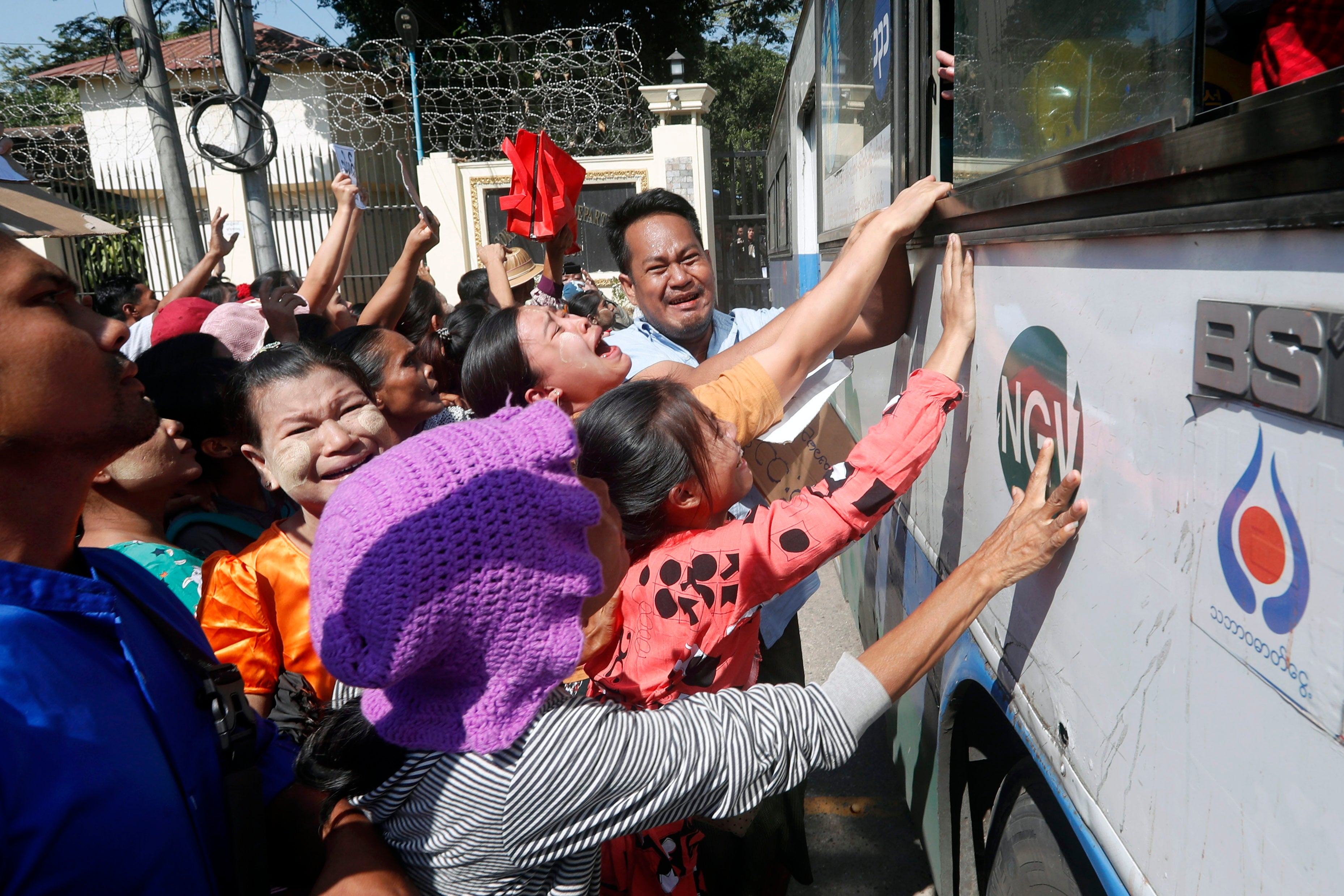
Your support helps us to tell the story
From reproductive rights to climate change to Big Tech, The Independent is on the ground when the story is developing. Whether it's investigating the financials of Elon Musk's pro-Trump PAC or producing our latest documentary, 'The A Word', which shines a light on the American women fighting for reproductive rights, we know how important it is to parse out the facts from the messaging.
At such a critical moment in US history, we need reporters on the ground. Your donation allows us to keep sending journalists to speak to both sides of the story.
The Independent is trusted by Americans across the entire political spectrum. And unlike many other quality news outlets, we choose not to lock Americans out of our reporting and analysis with paywalls. We believe quality journalism should be available to everyone, paid for by those who can afford it.
Your support makes all the difference.Myanmar’s military government has ordered the mass pardoning of nearly 10,000 inmates, including 114 foreigners, an annual ritual that still leaves the country with many thousands of political prisoners.
Emotional scenes played out at the Insein Prison in Yangon on Thursday as families and relatives welcomed those released after years in detention with tears and hugs.
The identities of those released was not revealed during the exercise, conducted on the 76th anniversary of the country’s independence from Britain.
They included jailed photojournalist Kaung Sett Lin, who was seen in pictures from Insein Prison waving from a prison bus and then hugging family members after his release. A Myanmar Pressphoto Agency photographer, Kaung was sentenced in December 2022 to serve three years’ hard labour in prison.
But they did not include former leader Aung San Suu Kyi and other senior figures from her democratically-elected government, who have remained in prison since they were ousted by a military coup in February 2021.
The head of Myanmar’s military council, General Min Aung Hlaing, issued a pardon to 9,652 prisoners, state-run MRTV television reported. It included 114 jailed foreigners who will be deported, he said, without revealing their identities or nationalities.
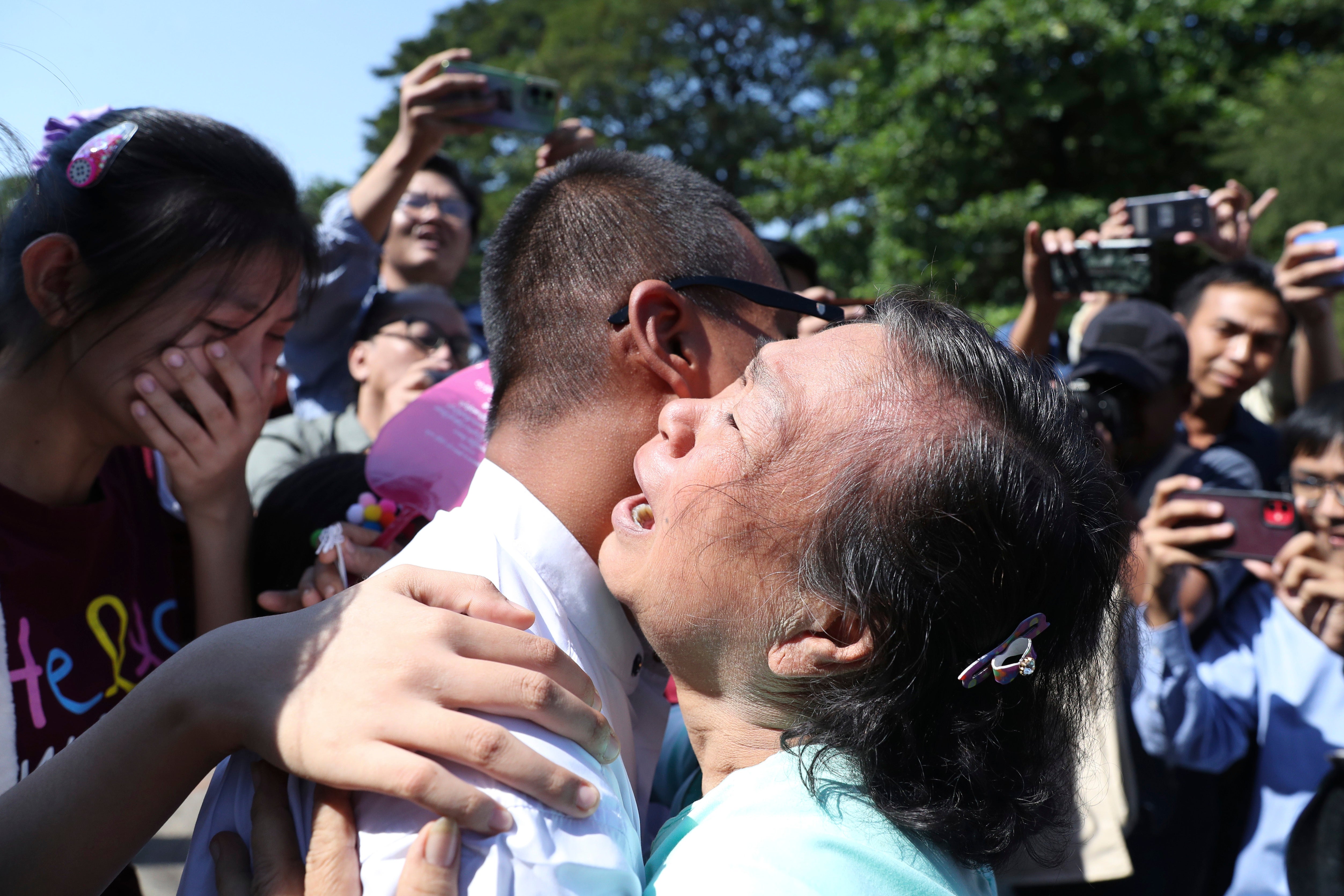
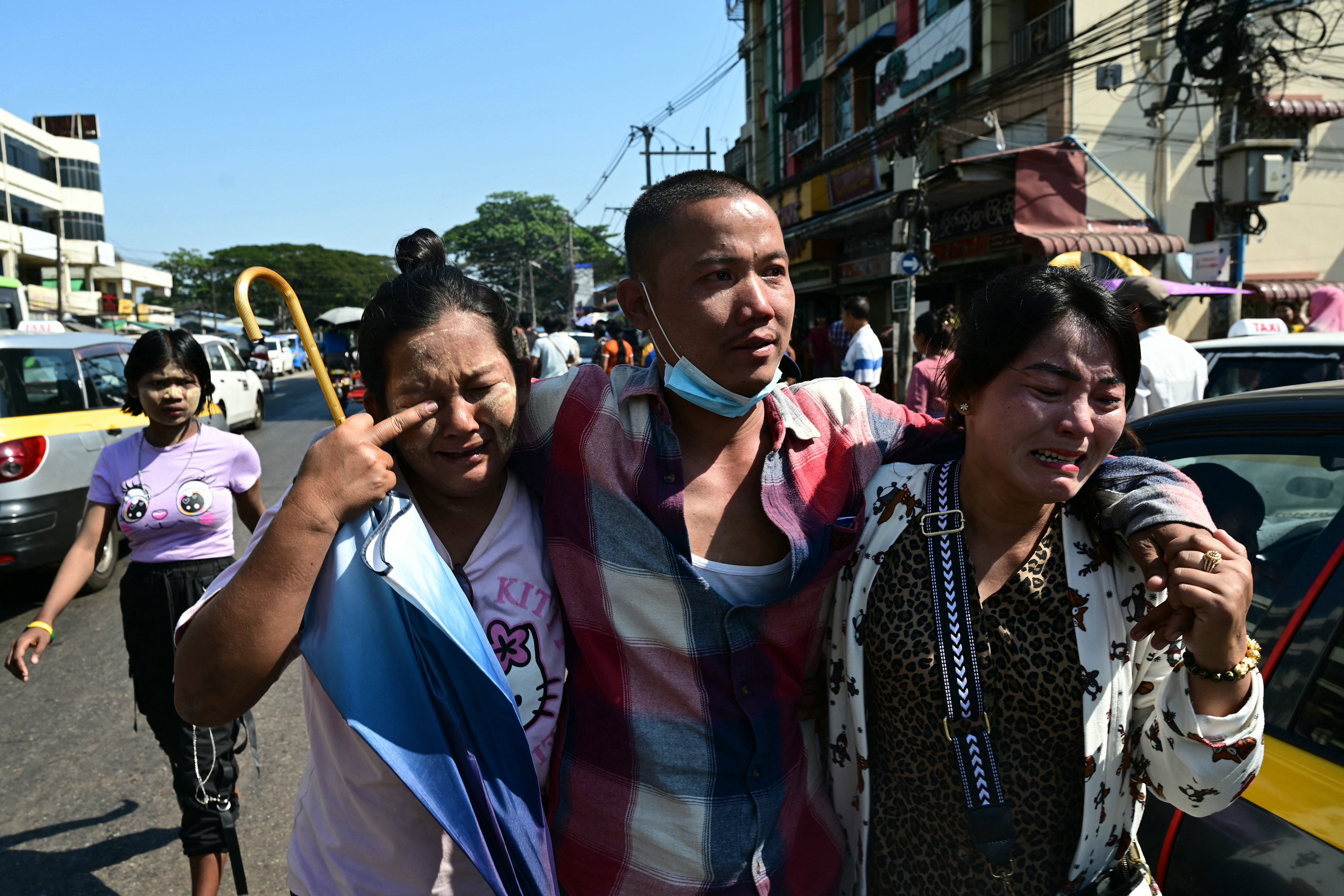
"With the intention of maintaining relations with other countries and on humanitarian grounds, 114 foreign prisoners will be pardoned," the junta said in a brief announcement on state media. "They will be deported."
The release of prisoners began on Thursday in a process that was expected to take several days.
Videos and pictures showed family members of some of the prisoners sitting and waiting outside the gates of Insein Prison in Yangon – notorious as a facility for housing political detainees in grim conditions – since Thursday morning.
There was no sign that Ms Suu Kyi, who has been held virtually incommunicado by the military since it seized power, was among the prisoners being released.
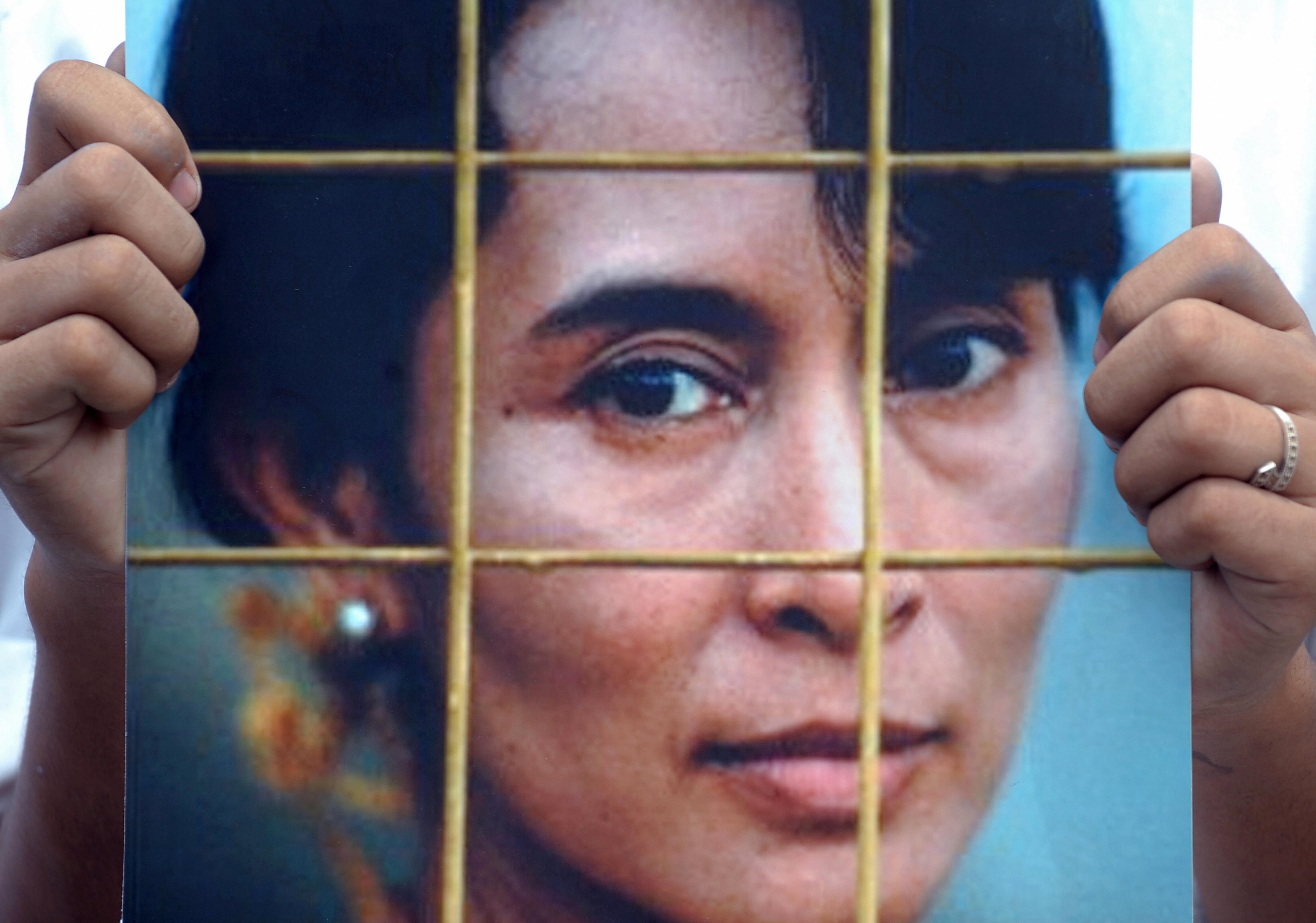
The 78-year-old Nobel laureate has been sentenced to 27 years’ imprisonment after being convicted in a series of cases brought by the military and prosecuted in closed-door trials. The charges range from illegally importing and possessing walkie-talkies, election fraud and violating coronavirus restrictions, to corruption and sedition.
She has denied all the charges and rights groups have condemned the trials as a political sham, meant to discredit her and legitimise the military’s seizure of power.
More than 25,730 people have been arrested on political charges since the army takeover, according to the Assistance Association for Political Prisoners, a rights monitoring organisation.
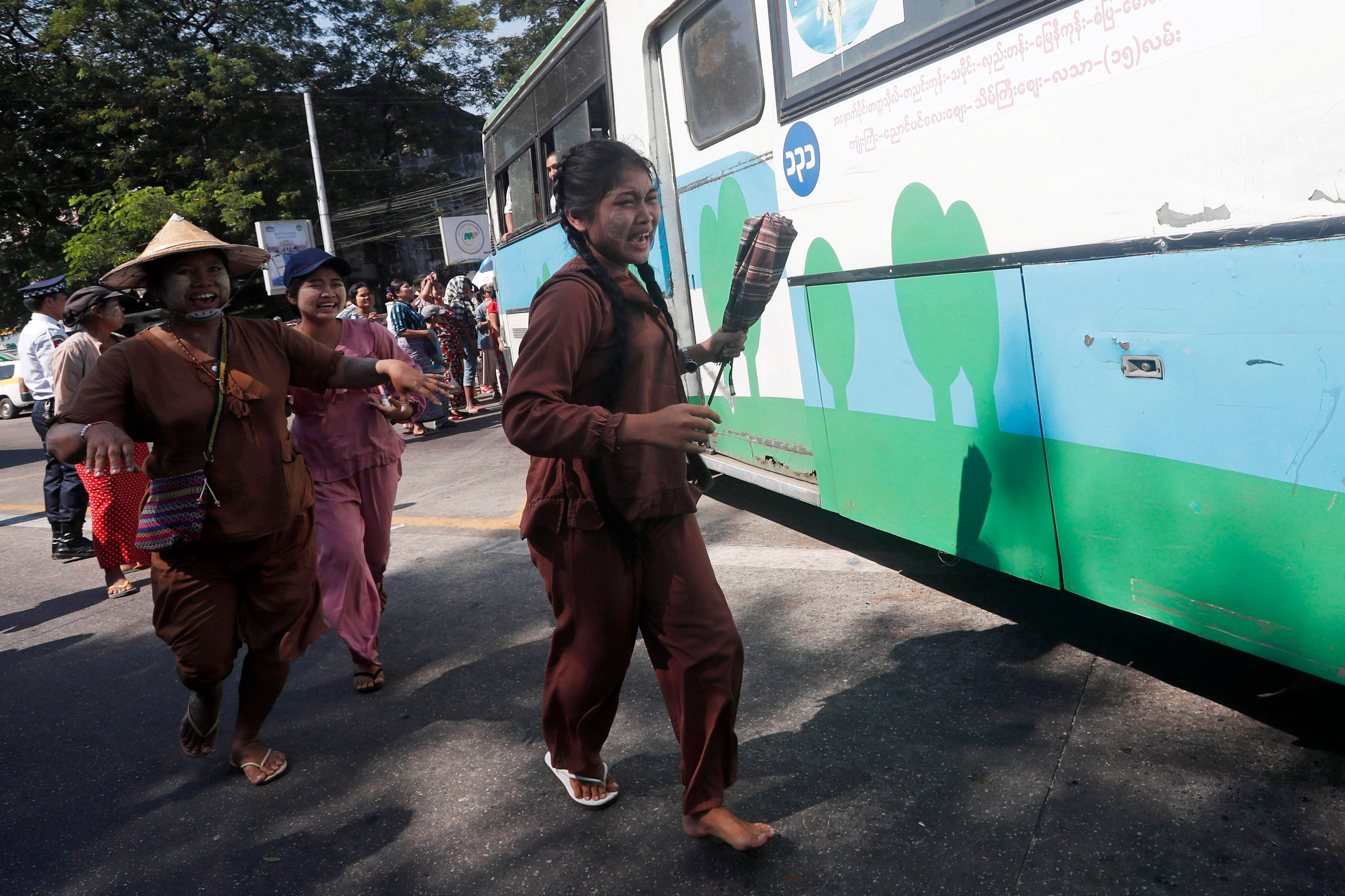
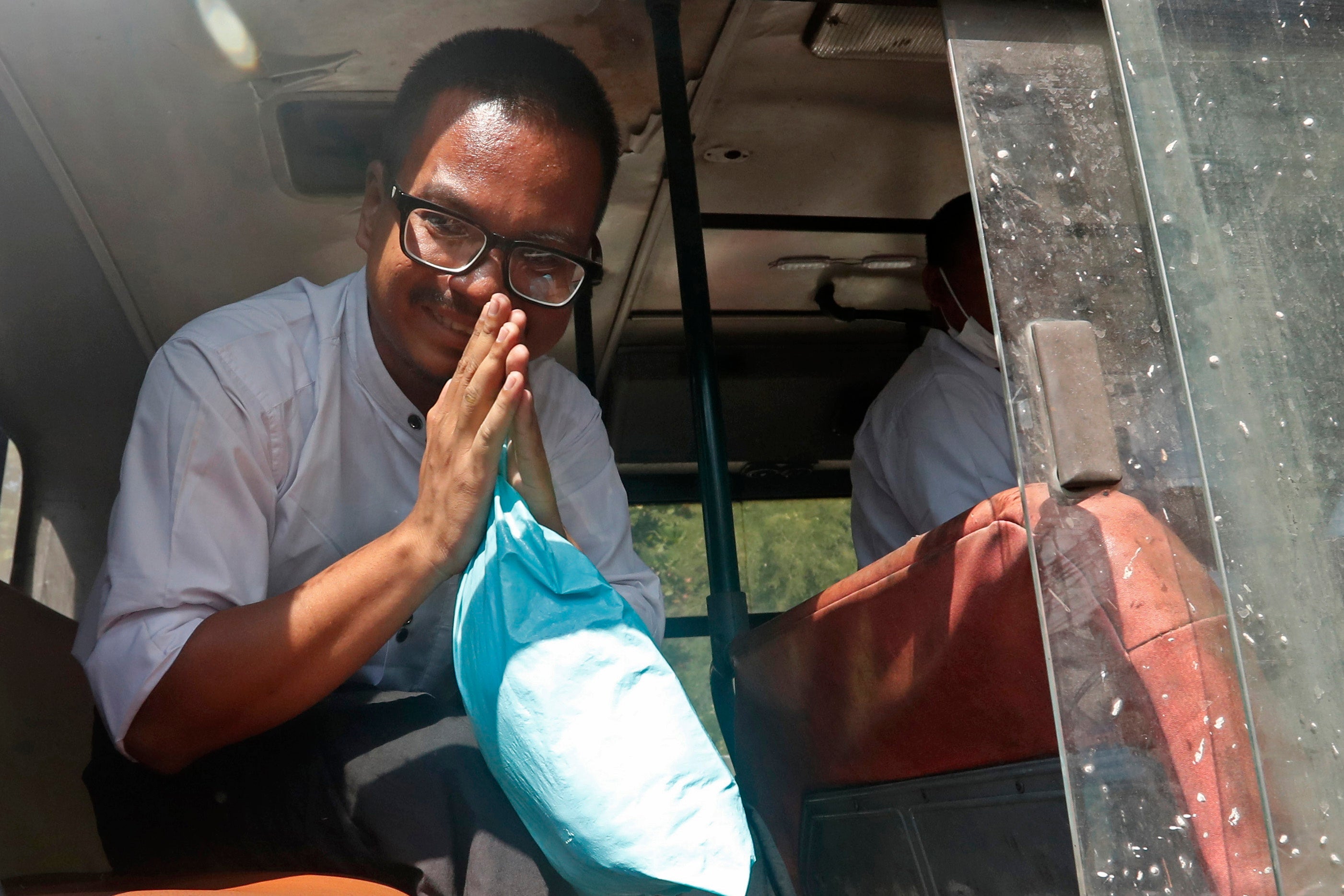
Out of those, 19,930 people were still in detention as of Wednesday, it said, adding that 4,277 pro-democracy activists have been killed by the security forces.
Most of those detained are being held on incitement charges for allegedly causing fear, spreading false news or agitating against government employees.
Periodic amnesties have been announced before on Myanmar’s national holidays. In one that took place in August this year, Ms Suu Kyi’s prison sentence was reduced after she was pardoned on five charges. In practice it is unlikely to make much difference, as she still faces more than a dozen cases.
The daughter of Myanmar‘s independence hero, Ms Suu Kyi was first put under house arrest in 1989 amid huge protests against decades of military rule. She was only fully released from house arrest in 2010.
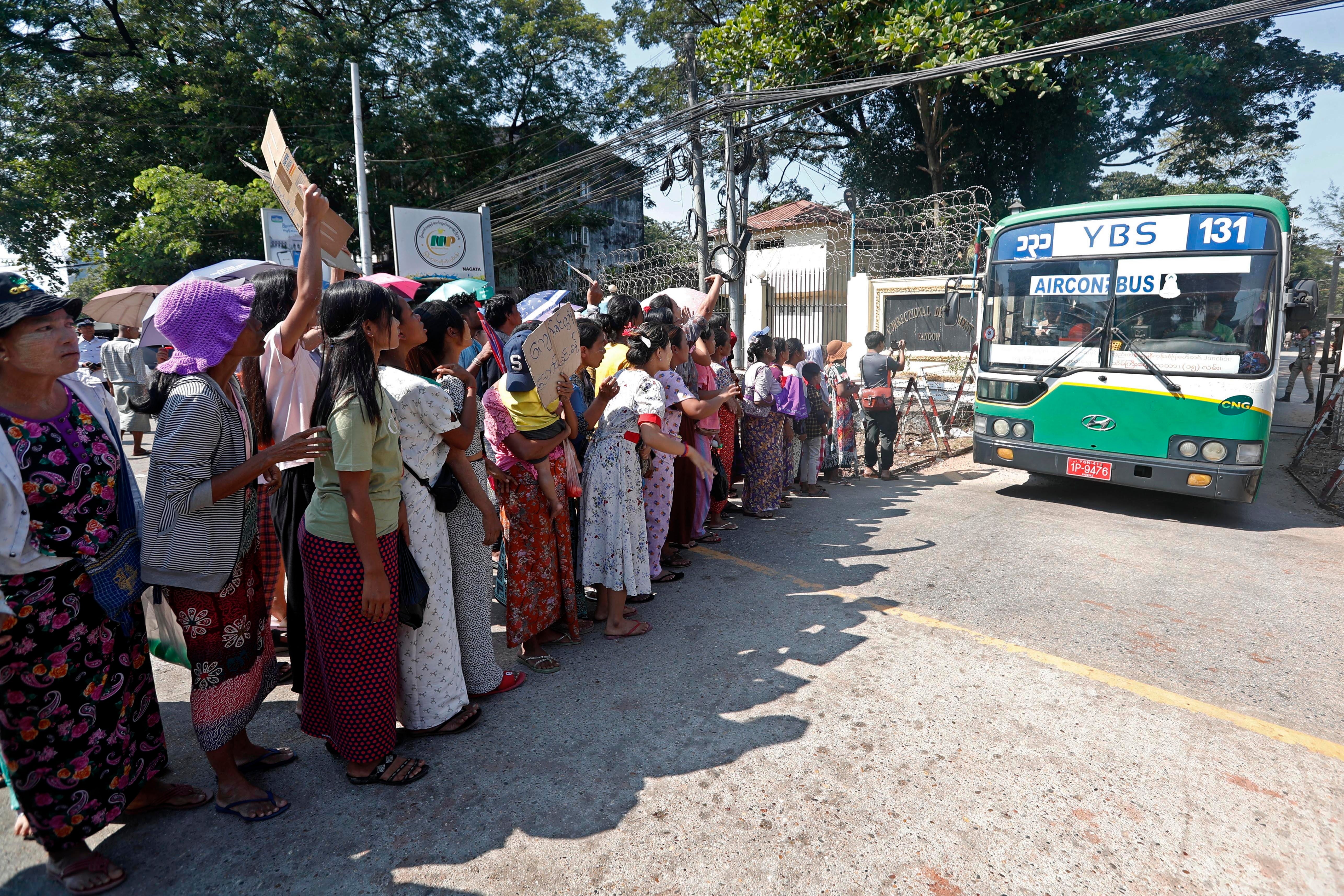
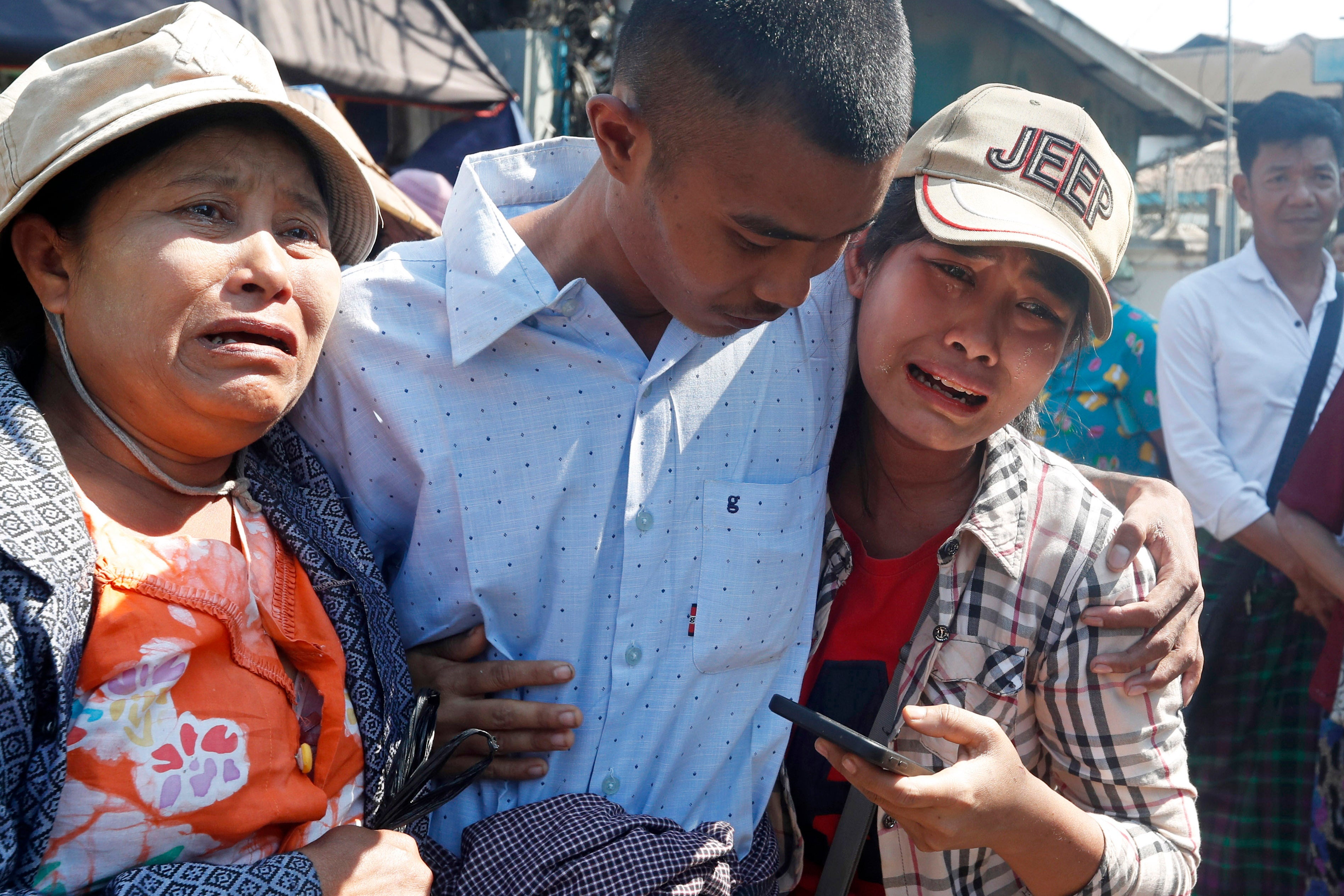
She swept a 2015 election, held as part of tentative democratic reforms, and her party won the next election in November 2020.
Known and beloved in much of Myanmar as “the Lady”, she won the Nobel Peace Prize for campaigning for democracy in 1991.
In Naypyitaw, the capital of Myanmar, the military government marked the anniversary of independence with a flag-raising ceremony and a small military parade at City Hall.
The junta leader’s Independence Day message, published in the state-run press, did not address the country’s prolonged political crisis or the increasingly deadly skirmishes with rebel groups as part of a worsening civil war.
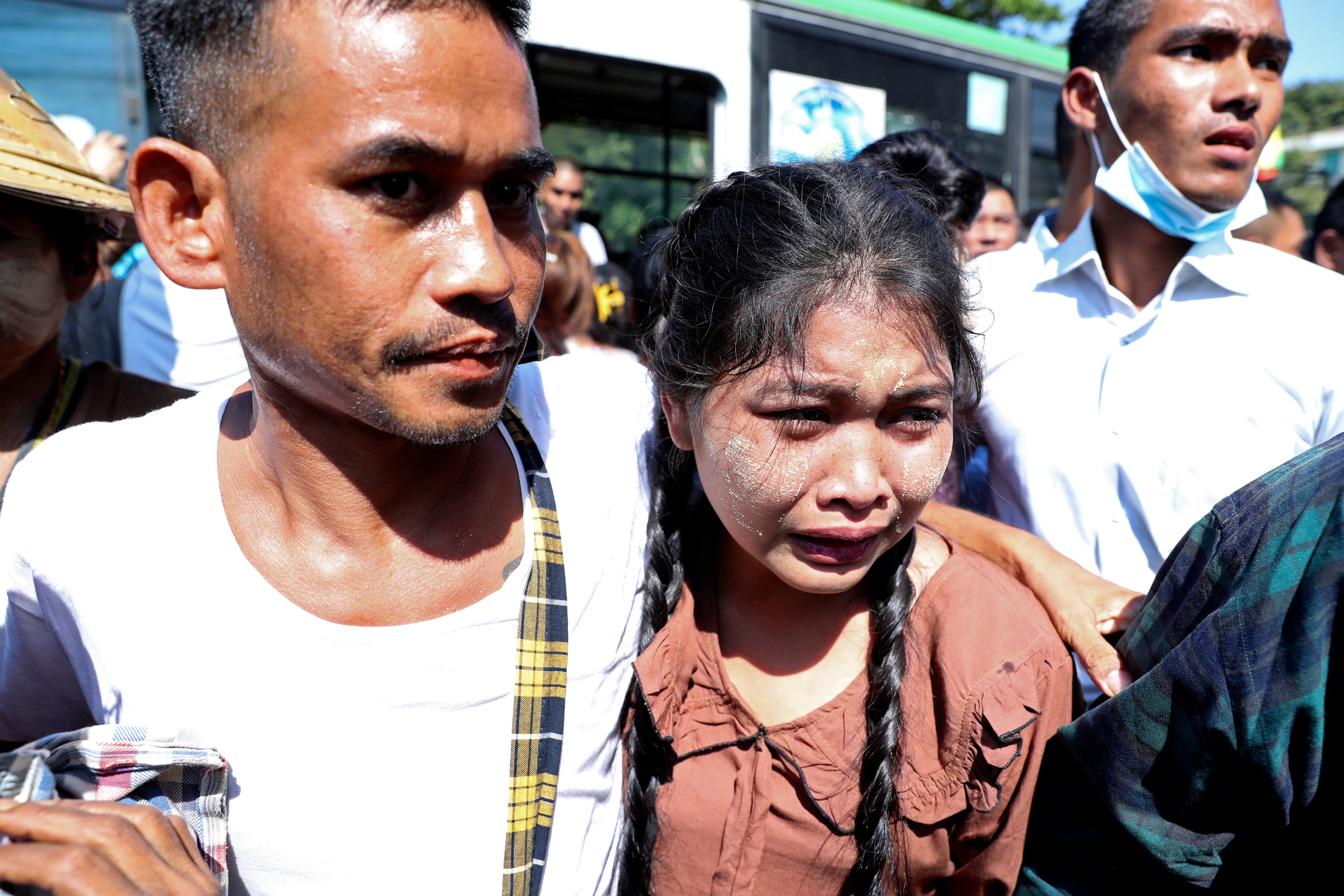
During a live broadcast of a flag-saluting ceremony, vice-senior general Soe Win, the vice-chairman of the ruling military council, delivered Mr Aung Hlaing’s speech.
Briefly touching on the topic of the resistance movement, he urged the ethnic minority groups, many of which are actively opposing military rule, to strengthen national unity.
He also pledged that the military government would conduct an election and transfer state responsibilities to the elected government, without specifying any timeframe for doing so.
Join our commenting forum
Join thought-provoking conversations, follow other Independent readers and see their replies
Comments